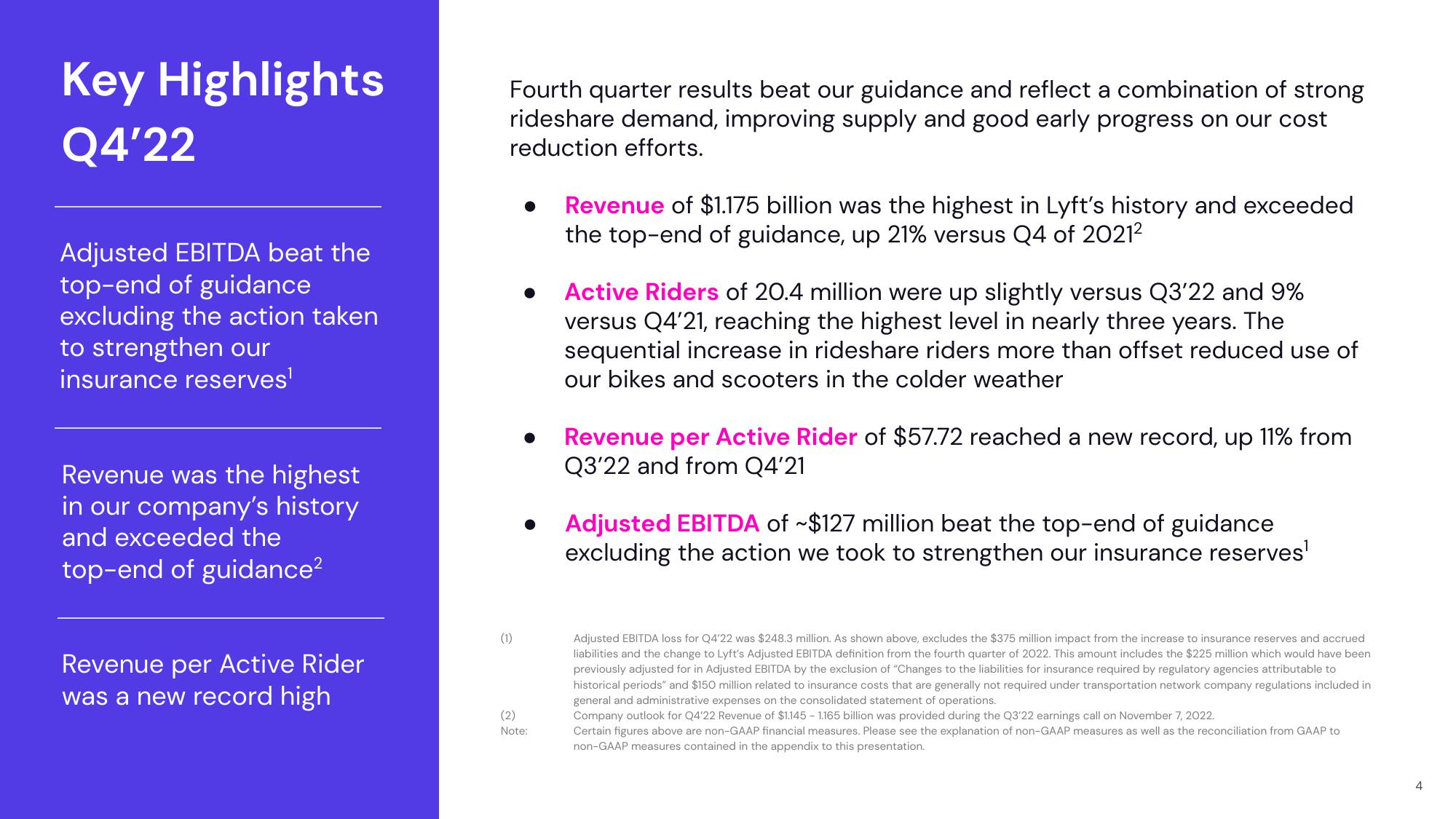Lyft Results Presentation Deck
Key Highlights
Q4'22
Adjusted EBITDA beat the
top-end of guidance
excluding the action taken
to strengthen our
insurance reserves¹
Revenue was the highest
in our company's history
and exceeded the
top-end of guidance²
Revenue per Active Rider
was a new record high
Fourth quarter results beat our guidance and reflect a combination of strong
rideshare demand, improving supply and good early progress on our cost
reduction efforts.
(1)
●
(2)
Note:
Revenue of $1.175 billion was the highest in Lyft's history and exceeded
the top-end of guidance, up 21% versus Q4 of 2021²
Active Riders of 20.4 million were up slightly versus Q3'22 and 9%
versus Q4'21, reaching the highest level in nearly three years. The
sequential increase in rideshare riders more than offset reduced use of
our bikes and scooters in the colder weather
Revenue per Active Rider of $57.72 reached a new record, up 11% from
Q3'22 and from Q4'21
Adjusted EBITDA of ~$127 million beat the top-end of guidance
excluding the action we took to strengthen our insurance reserves¹
Adjusted EBITDA loss for Q4'22 was $248.3 million. As shown above, excludes the $375 million impact from the increase to insurance reserves and accrued
liabilities and the change to Lyft's Adjusted EBITDA definition from the fourth quarter of 2022. This amount includes the $225 million which would have been
previously adjusted for in Adjusted EBITDA by the exclusion of "Changes to the liabilities for insurance required by regulatory agencies attributable to
historical periods" and $150 million related to insurance costs that are generally not required under transportation network company regulations included in
general and administrative expenses on the consolidated statement of operations.
Company outlook for Q4'22 Revenue of $1.145 - 1.165 billion was provided during the Q3'22 earnings call on November 7, 2022.
Certain figures above are non-GAAP financial measures. Please see the explanation of non-GAAP measures as well as the reconciliation from GAAP to
non-GAAP measures contained in the appendix to this presentation.
4View entire presentation